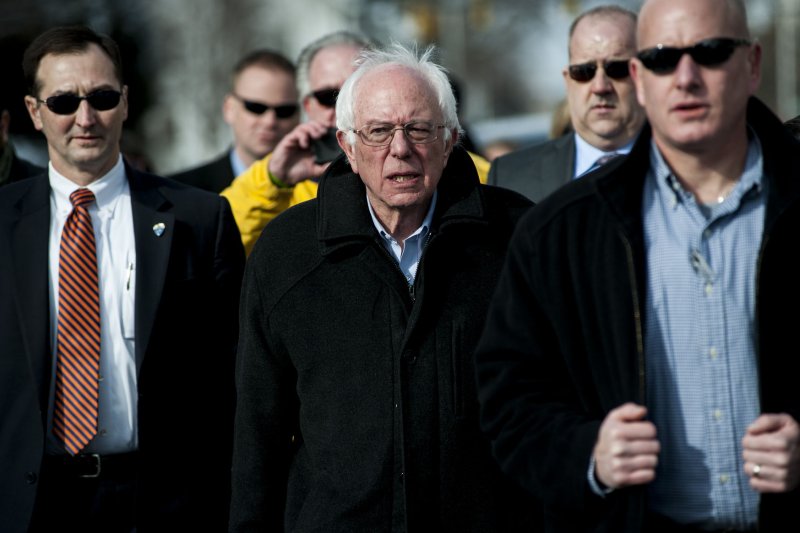Democratic presidential candidate Bernie Sanders has divided economists on the left and right who cannot agree on whether his proposals for universal health care and college at no cost are economically feasible. Photo by Ryan McBride/UPI |
License Photo
WASHINGTON, Feb. 15 (UPI) -- Sen. Bernie Sanders' plans for universal health care and free college have many of the nation's economists divided over the cost and feasibility of such proposals.
Sanders' proposal to break up banks deemed "too big to fail" have won accolades among some economists. Last month, his campaign released a letter signed on by 170 economists who endorsed the plan.
However, when it comes to "Medicaid for all" and free public college tuition, even economists who share those goals can't agree on whether or not they're realistic. The proposals ride on the idea of taxing Wall Street speculation, which would impact the nation's top earners and impose a 2.2 percent across-the-board tax.
"The numbers don't remotely add up," said Austan Goolsbee, a former economic adviser to President Barack Obama who now teaches at the University of Chicago. The New York Times reported that Sanders' plans could add up to $3 trillion in government spending per year and increase the size of government by more than 50 percent, according to economists like Goolsbee.
"We need a deep investment in infrastructure, more-efficient health care and less student debt," said Jared Bernstein, a former economic adviser to Vice President Joe Biden. "But when you put it all together, government's role in the economy goes well beyond anything we've ever considered."
When the Sanders campaign asked University at Massachusetts at Amherst economists to consider the price tag of his lofty goals, the team similarly said they would cost about $14.5 trillion over ten years.
Those economists, though, said the plans are worth the added expense.
"The Sanders spending program is a significant stimulus to an economy that continues to underperform," wrote Professor Gerald Friedman, who prepared the report for the Sanders campaign. "These programs will increase economic growth and employment, reduce poverty and inequality, and balance the federal budget."
The report, released last month, continued: "Like the New Deal of the 1930s, Senator Sanders' program is designed to do more than merely increase economic activity: the expenditure, regulatory, and tax programs will increase economic activity and employment, and promote a more just prosperity."















